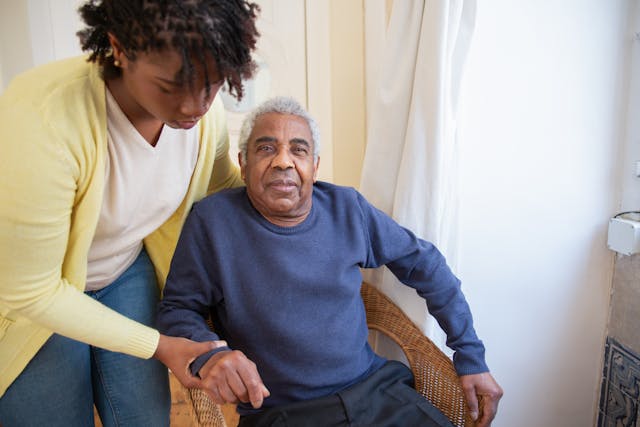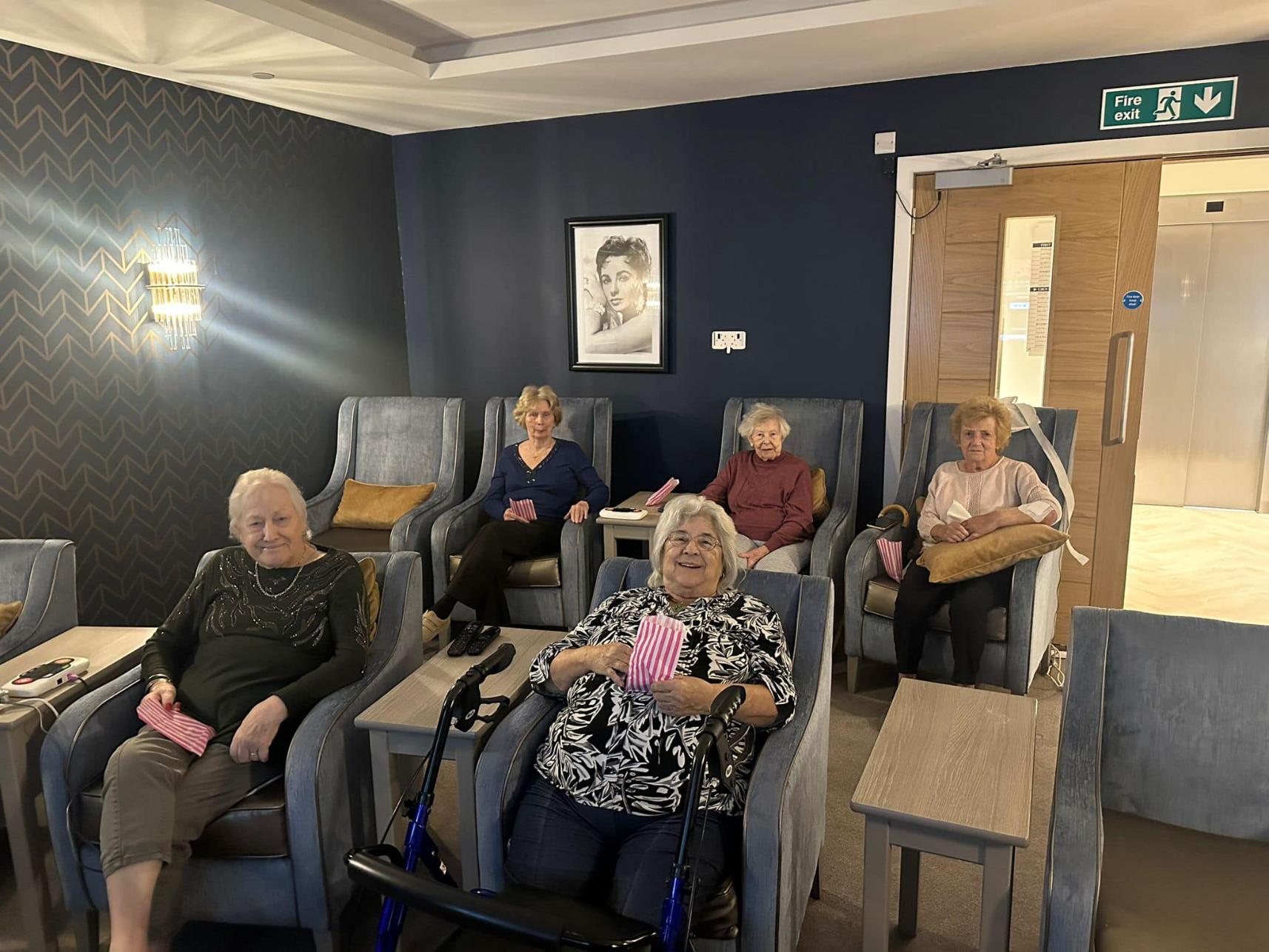How Can a Care Home Support Someone Living With Dementia?

Dementia is a condition that can affect a person’s memory and cognitive abilities, making it difficult to manage daily routines or maintain relationships as before. Over time, these changes may influence how a person interacts in different settings, responds to familiar situations, or experiences their daily routine. The emotional toll sometimes also extends to family members and friends, particularly if they take on caring responsibilities or need to decide when professional support is needed.
For many, choosing a care home is a turning point. It offers the reassurance of person-centred care and a stable environment where professionals are equipped to respond to changing needs. The right home nurtures well-being and prioritises what matters most to each resident.
What is Dementia Care?
Dementia care focuses on supporting individuals who are living with cognitive impairment to continue enjoying the highest quality of life. They are surrounded by a highly skilled and compassionate care team who are trained in recognising how dementia affects all aspects of someone's lifestyle.
Person-centred dementia care recognises every person as a unique individual, the approach values each resident’s life story and respects their personal choices, regardless of their mental capacity. Individual care plans are shaped around personal interests, background, dietary preferences and changing needs which follows them throughout their entire care journey and is updated on a regular basis. This ensures that the best interests of each resident remain central in care decisions, even as symptoms evolve or challenges with memory loss grow.
Dementia care often includes sensory support and environments designed to promote comfort. Sensory rooms and adapted spaces can help soothe and stimulate residents, offering relief from confusion or anxiety and enabling positive moments of connection.

When Should Someone with Dementia Go Into a Care Home?
The need to move into a care home may arise at different points for each person with dementia. In the early stages, living independently or with support from family is often possible, especially if visiting carers, day centres, or local services offer assistance. Over time, however, dementia affects many aspects of daily living and greater assistance may be required to maintain their safety and quality of life.
Warning signs that additional support may be needed include frequent accidents, changes in mood or behaviour, increased forgetfulness, problems with nutrition or distress at night. Family members may start feeling overwhelmed by the caring role or find that the person’s health needs exceed what can be provided at home. As dementia progresses, the decision-making process may also become challenging, and support from a care home ensures consistent monitoring, regular assessment and quicker response to health concerns.
When considering a move, seeking a care needs assessment from the local authority is essential. This assessment is designed to evaluate health requirements and will help outline the right type of care to look into. Following this, it is important to tour different care homes to get an idea of the lifestyle they could offer your loved one.
How Can a Care Home Support Someone Living with Cognitive Impairment?
Dementia care involves much more than providing safe accommodation. It delivers holistic and person-centred support that impacts every element of daily experience through skilled staff, flexible routines and an environment purposefully structured to support residents with dementia.
24/7 Specialist Care
People receiving dementia care in a care home benefit from assistance that is available at all times. Having professional carers and nursing care staff on hand both day and night means that clinical needs and changes in health are addressed promptly. This level of support lessens the risk of accidents, prevents medical complications and greatly reduces any worries for both the resident and their family.
Around-the-clock care ensures residents never feel abandoned or frightened by symptoms that might arise during the night or outside of 'usual' care hours. Team members are equipped to handle a range of dementia-specific symptoms, from wandering and distress to significant changes in mental capacity.
A Structured Environment and Safe Spaces
The design of a care home for those living with dementia is intentional and person-centred. Clear signage, thoughtfully chosen colours and easily navigable layouts help reduce feelings of confusion and can help residents settle after making the transition. Residents are also typically encouraged to decorate their bedroom with personal items or furniture to make it feel like home from the moment they move in.
Other facilities such as peaceful lounges, garden areas or sensory rooms can also provide an enriching but safe space for people living with dementia. Having different environments where residents can feel safe and thrive is essential when looking to provide first-class care.

Personal Care Delivered with Dignity
Personal care forms the foundation of support for anyone with dementia residing in a care home. Daily routines such as getting dressed, bathing, using the bathroom and eating are all carried out with patience and dignity. Staff adapt approaches for each resident, being mindful of sensitivities and communication barriers.
By receiving dementia care in a care home, carers can also easily notice any subtle changes in habits or preferences that may reflect developing needs and adjust their methods to reflect this. Whether individuals are living in the early stages of dementia or have more complex health needs, the care team will ensure each person's care is delivered with compassion and respect.
Tailored and Meaningful Activities
Engaging in activities helps to maintain a sense of purpose and stimulation for residents with dementia. Depending on their individual preferences, residents are either incorporated into the regular group activities that happen within the care home on a daily basis or offered 1:1 sessions with a trusted team member. Whether residents want to take part in music sessions, gardening, arts and crafts or reminiscence therapy, it is always structured flexibly to ensure they can participate in a way that suits them.
Sensory rooms have shown huge benefits for those who are living with cognitive impairment. These spaces offer gentle light, familiar scents, soft sounds, comfortable seating and a soothing environment that can help calm agitation or redirect attention. Residents experiencing advanced memory loss or difficulty with language often respond positively to sensory stimulation and prefer this over traditional activities.
Support for Mental Health and Emotional Well-Being
Dementia can hugely impact mental health and emotional well-being. Residents may feel lonely or confused, especially if they struggle to recognise others or recall recent events. Care homes provide a stable environment that nurtures familiar social interaction and offers gentle reassurance throughout the day.
Professional carers are trained in the nuances of communicating with a person with dementia, adjusting the way they deliver care to ensure understanding and comfort. Regular communication with family members also supports emotional security by building a consistent network around each resident.
Person Centred Care
At the heart of dementia care in any high-quality care home is a person-centred approach. Every resident’s history, routines, achievements, hobbies and preferences are carefully recorded and referenced so that care remains consistent and meaningful. Ongoing dialogue with family members is vital, ensuring changes in the resident’s well-being or interests are quickly addressed and care plans remain dynamic.
This approach is especially important for a person with dementia who may struggle with capacity or decision making later in the condition. By fostering ongoing relationships and updating plans regularly, professional carers ensure each person continues to feel seen and valued, not defined by their diagnosis alone.
Delicious and Nutritious Mealtimes
Nutrition is a vital part of dementia care in a care home. Appetite and dietary needs can change unexpectedly for a person with dementia, so meals are adapted to take into account not only nutrition but also taste, texture and independence. Residents who have difficulty with cutlery or swallowing receive meals in forms that support both safety and dignity.
Mealtimes are always structured for comfort. While some residents enjoy the social aspect of dining, others benefit from quieter, more supportive spaces. Staff members will monitor hydration levels and are alert to changing patterns that might signal health concerns. Menus are often revised in line with preferences identified during regular care needs assessment.



Dementia Support at Yarnley House Care Home in Ringwood
At Yarnley House, we are proud to provide exceptional levels of care to those living with dementia. Our care home in Ringwood features a team of professional carers and nurses who prioritise personalised dementia care in everything they do. Alongside this, we also offer unrivalled levels of residential care, nursing care and respite care.
Residents can benefit from 24/7 specialist care, a thoughtfully designed environment and unlimited access to our purpose-built facilities. Whether they wish to enjoy some cognitive stimulation in the sensory room, some music therapy in our comfortable lounges or their favourite drink in our café, there is something for everybody to enjoy. Before residents move in, we collaborate with them and their loved ones to create a care plan that outlines all aspects of their lives, ensuring our care perfectly aligns with their values and preferences.
For anyone undergoing the process of choosing a care home, we are here for you every step of the way. Our team would be delighted to answer any questions you have or welcome both you and your loved ones in for a tour. Our focus is always on maintaining dignity, supporting well-being and promoting the highest possible quality of life for every resident. To learn more, get in touch today.





